The Middle Ages
Disclosures II: The Middle Ages
Saturday 6 September 2008
Curated by Anna Colin
Contributors
John Beckett, Chris Matthews, Neil Cummings, Olivia Plender, Open Music Archive and Ultimate Holding Company
Location
Laxton, Nottinghamshire
Produced by Nottingham Contemporary in partnership with Gasworks.
* * *
Resources and Documentation
· For documentation of specific contributions to Disclosures II: The Middle Ages, please click the links in the sidebar.
· For material and resources informing the research process of Disclosures, see Pipeline.
* * *
Disclosures II: The Middle Ages explored the relationship between agricultural commons and cultural commons in the Nottinghamshire village of Laxton, the last substantial surviving example of the medieval open field system of farming in England. In Laxton, farmers farm individual strips of land in shared fields, now owned by the Crown, as they have done for centuries. Disclosures II: the Middle Ages spanned the Agrarian Age and the Information Age through a day of talks, walks, discussions, games, artworks and socialising in Laxton, in parallel with an exhibition by artist Olivia Plender at Nottingham Castle.
Disclosures II: The Middle Ages followed on from Disclosures. Taking its cue from creative commons and open source initiatives on the Internet, Disclosures aimed to examine what openness might mean in both online activity and in cultural production at large. Disclosures took the form of an international conference, a library, and a series of artists’ commissions and events. Disclosures II: The Middle Ages continued the reflections of Disclosures, this time in a historical, rural context.
What are the connections between organisational methods in open field farming and in open source-inspired cultural work? While the former field of work involves the grazing of animals and growing of crops on shared land, the latter embraces practices that make knowledge, expertise and research publicly and freely available. Within it, its workers are dedicated – artistically, ethically and politically – to disclosing and sharing information that often stimulates critical thinking and, in some cases, leads to reforms. In this way, they are often opposed to both the logic and the power of the conventionally competitive market economy.
This aspiration to stay outside the capitalist economy, both financially and ideologically, is one ideal that links pre-Enclosure agricultural commons to modern day cultural commoners. If the respective contexts – one pre-dating private property and the other conscious of the consequences of the market economy – are hardly comparable in any usual sense, this common aim allowed us to relate them in terms of shared economies, mutual benefit and collective action across time and context.
In Laxton, Disclosures II: The Middle Ages reflected upon the open field system, its social advantages and economic viability historically and today. It used these considerations as a backdrop to debate contemporary concerns around food production, and the use, ownership and control of land, notably in relationship to cultural production.
Disclosures II: The Middle Ages was developed in collaboration with and produced by Nottingham Contemporary. Disclosures II was part of Nottingham Contemporary’s Histories of the Present, a year long series of exhibitions and events in historically significant places in and around Nottingham.
Click here for material related to Disclosures II: The Middle Ages on Pipeline.
* * *
- Barn
- Bus tour
- Bus tour
- Laxton Castle
- Laxton Castle
- Set Sail for the Levant, a game by Olivia Plender
- Set Sail for the Levant, a game by Olivia Plender
- John Beckett
- Stuart Rose
- Olivia Plender
- Neil Cummings
- Jai Redman
* * *
DISCLOSURES II IN LAXTON | SATURDAY 6 SEPTEMBER 2008
Part I
11:00 · Meeting in Mount Street, Nottingham. A bus tour of Nottingham’s former common lands and open fields led by artist and historian Chris Matthews.
11:45 · Departure to Laxton. Screening of a 23-minute documentary video narrated by John Beckett (1984) providing an insight into how the open field system has been operated over the years by the Gait and Common and the tenant farmers.
12:30 · Arrival in Laxton, followed by lunch with pig roast, local produce, vegetarian option and medieval recipes. Location: Mike Jackson’s barn.
13:30 · Introduction to Disclosures II: The Middle Ages.
13:50 · Lecture by John Beckett, Professor of English Regional History at the University of Nottingham and author of Laxton, England’s Last Open Field Village (1989).
14:30 · Guided walk around Laxton Castle, Laxton’s strip farming and manorial system led by Prof. John Beckett and Stuart Rose (Laxton farmer, Clerk to the Gaits and Commons and trustee of the Laxton Visitor Centre). Departure from Mike Jackson’s barn.
15:45 · Screening of Bring Back Robin Hood by Olivia Plender (30 min).
Part II
Choice A
16:15 · Individual presentations followed by a panel discussion around themes of land control and ownership, history and environmental sustainability as dealt by cultural producers.
With Neil Cummings (artist and member of the research cluster Critical Practice, London), Jai Redman and Joe Richardson (Ultimate Holding Company, Manchester, a radical art and design studio). Location: Mike Jackson’s barn.
Choice B
16:15 · Artist Olivia Plender introduces Set Sail for the Levant, her board game inspired by the 16th century Royal Game of the Goose. The public are invited to play and help shape the rules of a game in the making. Location: Mike Jackson’s cowshed.
Part III
18:00 · Eileen Simpson and Ben White (Open Music Archive) use Declose, the vinyl battle tool created for Disclosures I, to make music for a party in the barn.
Declose is a copyleft licensed 12″ vinyl scratch tool containing a range of samples, beats and extracts made from out of copyright blues, jazz and folk housed in the Open Music Archive. Declose was made in collaboration with music producers from the burntprogress community.
Download the Declose record from: www.openmusicarchive.org/declose
21:00 · Return to Nottingham. Meeting point: the Dovecote Inn car park.
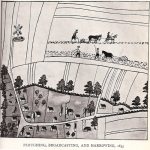
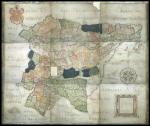
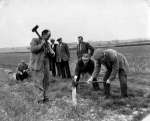
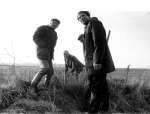


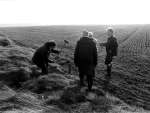
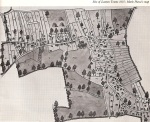
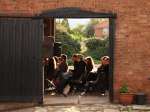


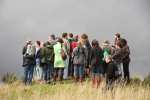
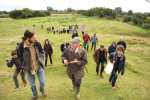

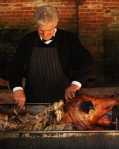
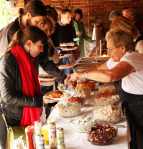
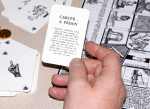
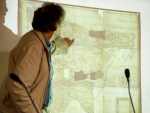
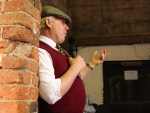


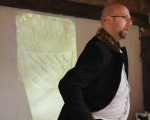
You must be logged in to post a comment.